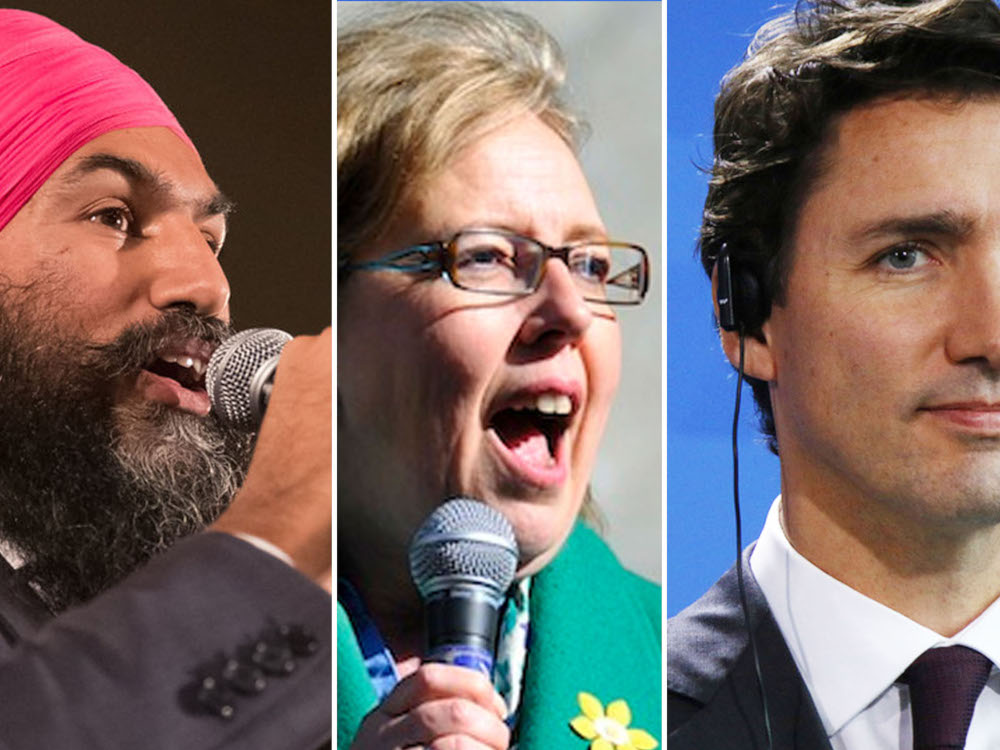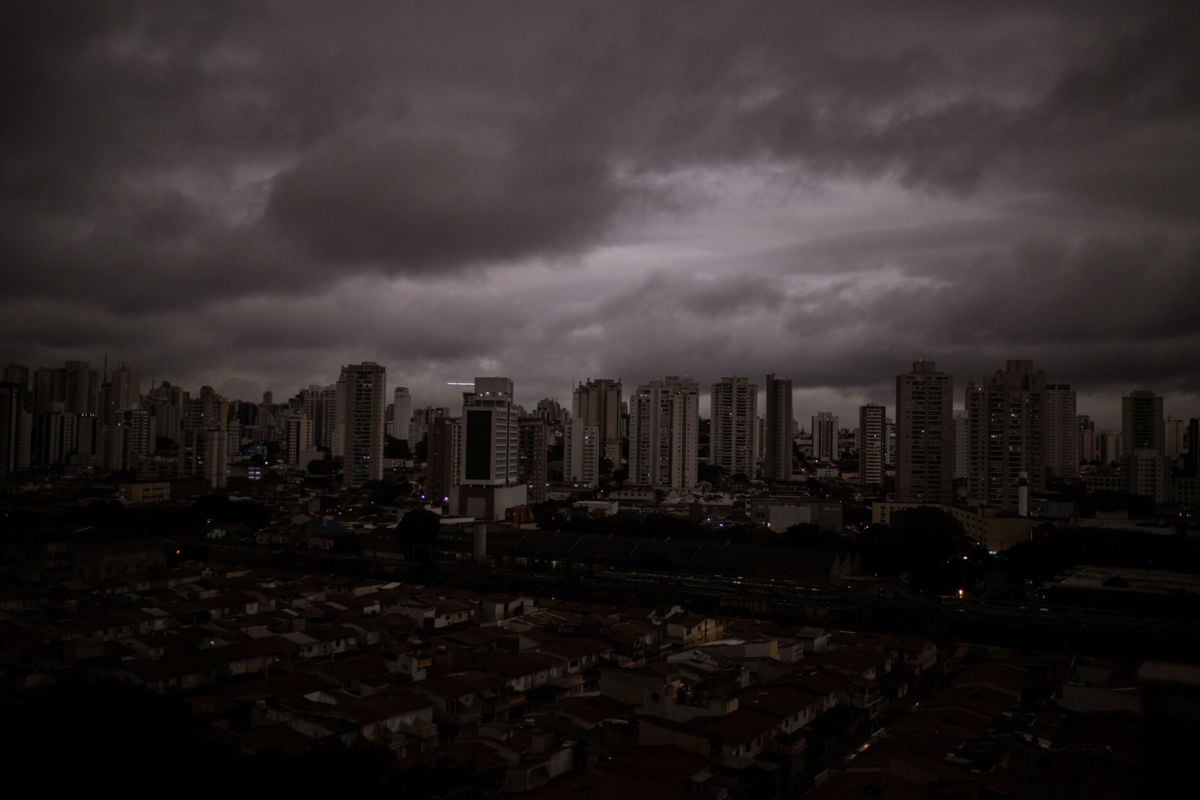Parties and advocates share their roadmaps for a system change in the future.

On electoral reform, the NDP and Greens are here to tell Trudeau: it’s not over. Photo of Jagmeet Singh from Flickr via Canada’s NDP. Photo of Elizabeth May via The Tyee. Photo of Justin Trudeau from Shutterstock.
In fall 2016, Green Party leader Elizabeth May and her colleagues on the House of Commons Special Committee on Electoral Reform spent weeks crisscrossing the country to canvass Canadians’ opinions on changing the way they choose their Members of Parliament.
“We heard from hundreds of thousands of Canadians that they wanted proportional representation,” said May in a recent interview.
In its December 2016 report to Parliament, the committee recommended PR as a replacement for the first-past-the-post system the Liberals promised to end during the 2015 federal election campaign.
However, two months after the report was released, the Trudeau government declared electoral reform dead.
For May, though, the issue is very much alive. She plans to promote proportional representation in the weeks leading up to the Oct. 21 federal election and hopes for a minority government that would advance the issue in the next Parliament.
“In an era where so-called populists like Donald Trump or Doug Ford can get to power, it’s incredibly important that we ensure that no one can get power in Canada with less than the majority of the popular vote yet have 100 per cent of the power,” said May. “We must prevent that from ever happening by getting rid of first-past-the-post now, because it is the only election system, other than preferential voting, that allows that kind of distortion to happen when a party with a minority public support can gain a false majority.”
May said that as part of its 2019 federal election campaign platform the Greens will call for the creation of a national citizens’ assembly to determine the best alternative to the first-past-the-post system.
Fifteen years ago, a similar body in B.C. recommended a single transferable vote system, which received the support of 58 per cent of British Columbians in a 2005 referendum — not enough to meet the 60-per-cent threshold established by the provincial government. A second referendum, held in 2009, essentially reversed the results, with 61 per cent of the province’s residents voting against changing their first-past-the-post electoral system.
“One of the reasons it was so well-received in 2005 was not that every British Columbia voter really felt confident that they understood exactly how a single transferable voting system would work, but that they felt a lot of trust and confidence that the recommendation wasn’t coming from people within political parties that had self-interest at stake but from average voters on a citizens’ assembly,” explained May, the MP for Saanich-Gulf Islands.
May also believes the Liberals’ about-face on electoral reform will hurt them in October.
“A lot of people voted Liberal because they believed Justin Trudeau when he said 2015 would be the last election under first-past-the-post — and I will count myself among those people who believed him,” she said.
If the election results in a minority government, May plans to raise proportional representation as part of the conditions to support either a Liberal or Conservative government.
“We need to make sure that we get rid of first-past-the-post, whether it’s mixed-member proportional or single transferable vote or the rural-urban option that was included in last year’s referendum in B.C. or any other mathematical formulas described as consensus-based systems — and have voting that’s fair,” she explained.
“It’s clear that the system we have now is the worst.”
“Not only do consensus-based systems have higher voter turnout and more women elected, but they also have stronger environmental regulations and better economic performance,” said the Green leader, who added that during her recent Community Matters Tour, in which she held 33 town hall meetings in every province and the Northwest Territories, at least one question regarding PR was raised.
The NDP also supports proportional representation, but the party takes a slightly different approach.
As part of their 2019 election campaign platform, the New Democrats say that if they form the next federal government they will introduce a mixed-member proportional system and establish a citizens’ assembly to determine how it would work for the following election, which would presumably be held in 2023.
A national referendum would be held after that election to allow Canadians to decide if they like the new system or whether they would prefer to return to first-past-the-post. (An NDP government would also lower the voting age to 16.) MORE




